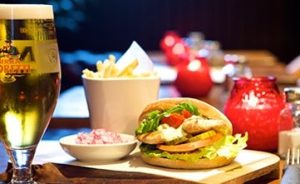Is It Food And Drinks Or Entertainment?
Are you claiming legitimate deductible food and drink expenses or are you providing non-deductible
entertainment? Unsure? Read on…
If an expenditure can be shown to be directly connected with the carrying on of a business, it should be deductible. However, when it comes to food and drink and the possibility of entertainment, things are a little less ‘black and white.’ For example, don’t just assume that taking a client out to lunch and labelling it a ‘business lunch or meeting’ will have you covered for a deductible expense. You will have to be able to justify it with a why, what, when and where!
What does the ATO consider Entertainment?
To help understand this, we need to go back to basics. What is entertainment?
Entertainment can be defined as the action of providing or being provided with ‘amusement’ and or ‘enjoyment.’ It is these two attributes, amusement, and or enjoyment, when applied to the provision of food and drink, will determine it to be meal entertainment and a non-deductible expense.
Income tax defines entertainment as ‘entertainment by way of food, drink, or recreation,’ and any ‘accommodation or travel connected to the provision of food, drink, or recreation. Under Income tax law, entertainment expenses are not deductible, however this ruling out does not apply when Fringe Benefit Tax (FBT) is paid on the entertainment, in other words, when the entertainment is provided to employees. This mechanism prevents the entertainment provided to employees from being double taxed.
In most cases the mere provision of food or drink is sufficient to satisfy as entertainment.
So, it is important to look at the specific circumstances relating to the provision of the food or drink in each situation as each situation is different. The ATO will consider four factors in deciding if meal entertainment has been provided: Why, What, When and Where. The validity of the expense is then determined on the balance of the answers, not the strength of any single one of the answers to those questions. If the expense is deemed to be entertainment, it is non-deductible for income tax purposes and no GST can be claimed on it. If it is not entertainment and therefore a business cost, it is a deductible expense.
Determining whether it is meal entertainment.
The four factors you must ask yourself with a food or drink expense:
- WHY is the food or drink being provided?
It’s basically a ‘purpose test’. What is the reason? Is it to provide refreshment or is it a social function?
Food provided for refreshment or sustenance (e.g., Tea, Coffee, sandwiches, biscuits) doesn’t generally have the attributes of entertainment, and is therefore likely to be a deductible expense whereas a social function or situation where the purpose of the function (e.g., Christmas Party) is for employees/clients to enjoy themselves will carry the attributes of entertainment.
What about that client business lunch? You may have a solid business reason for the ‘why’ but what about the next factor? (Remember the claim is determined on the balance of the questions!) - WHAT type of food or drink is being providing?
Morning tea or light lunch cannot be considered the same as a three-course work lunch. The latter is clearly a provision of enjoyment and amusement and likely to be entertainment, especially if there is alcohol involved!
Reasoning would suggest, if a meeting or lunch is for business purposes, food and drink should merely be functional, (not the main reason for the meeting) Therefore coffee or a light lunch (the “what”) will more likely support the “why” and the legitimacy of the deductibility of the expense. A lavish three course business meal with alcohol suggests much less credibility to supporting the “why” on that client business lunch claim, suggesting to the ATO it looks more like entertainment, therefore non-deductible! - WHEN the food or drink is being provided?
Food or drink provided during worktime/overtime/travelling for work is less likely to have the characteristic of entertainment than a staff social function.
Food and drink consumed during business hours is far more justifiable in supporting a business activity than a business meeting after business hours! - WHERE the food or drink is being provided?
Food provided at the employer’s business premises or at the usual place of work of the employee is less likely to be entertainment compared to food provided at a restaurant or café.
Again, while no single factor will be determinative in concluding there is entertainment along with the provision of food or drink, the WHY and WHAT factors are usually the most relevant factors in concluding that food and drink entertainment has been provided in certain circumstances.
Food and Drink that are not entertainment.
It is safe to say there are certain circumstances where food and drink are deductible. This includes food and drink associated with:
- Staff amenities such as tea, coffee, milk, and biscuits which are generally deductible.
- Promotion and advertising such as a product launch where the food and drink is relevant and incidental to the promotional event of the business.
- Travelling away from home for business purposes.
- Attending a seminar/workshop/conference that has a duration of more than four hours.
In summary, by remembering the attributes of entertainment – amusement and enjoyment, and applying the four questions Why, What, When and Where to your food and drink expense, you can be more assured of having a “reasonably arguable position” in determining whether your meals are legitimate deductible expenses or non-deductible entertainment.
If you find that you are providing meal entertainment, check your claims. You may be claiming deductions you shouldn’t, or if you’ve unsure, you may not be claiming what you could. If you need help, need advice, or have more questions. Contact our office.
Author
Naomi Aspromourgos

